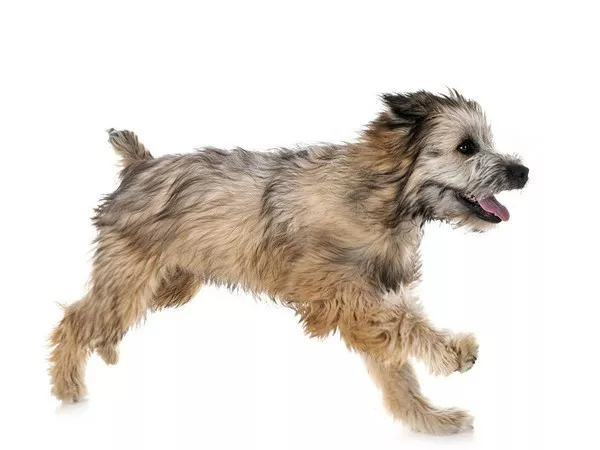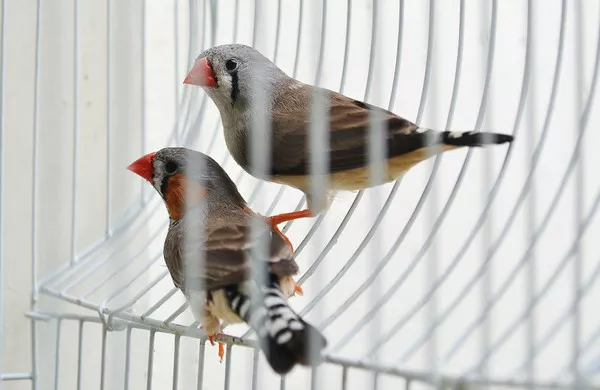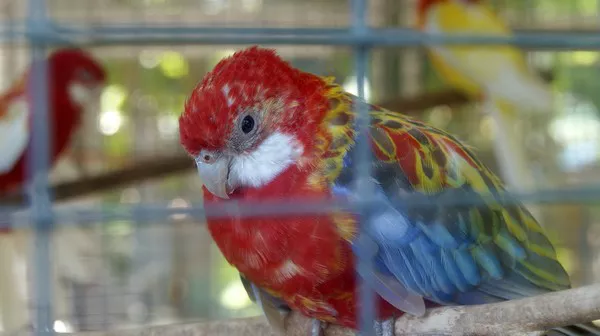As a pet owner, one of the most important decisions you’ll make for your furry friend is choosing the right foods for them. Rabbits are herbivores, meaning their diet should primarily consist of plant-based foods, such as hay, fresh vegetables, and leafy greens. Many new rabbit owners often wonder if certain vegetables, like cucumbers, are safe to feed their pets. In this article, we will explore whether cucumbers are a safe food option for rabbits, their potential health benefits, and how they should be incorporated into your rabbit’s diet.
Understanding a Rabbit’s Digestive System
Before diving into the specifics of cucumbers, it’s important to understand how a rabbit’s digestive system works. Rabbits have a highly specialized digestive system designed to process a high-fiber, low-calcium diet. Their digestive tract is quite long, which helps them extract nutrients from fibrous plant material over an extended period of time. A rabbit’s diet should ideally be made up of:
Hay: The main source of fiber in a rabbit’s diet, hay aids in digestion and keeps their teeth healthy.
Fresh greens: Leafy vegetables such as romaine lettuce, parsley, cilantro, and dandelion greens provide essential nutrients.
Fresh vegetables: In moderation, non-starchy vegetables such as carrots, bell peppers, and cucumbers can be added to their diet.
Water: Fresh, clean water should always be available to keep the rabbit hydrated.
Now, let’s take a closer look at cucumbers and how they fit into a rabbit’s dietary needs.
What Are Cucumbers?
Cucumbers (Cucumis sativus) are a popular vegetable belonging to the gourd family. They are primarily composed of water (about 95%), with very few calories, making them a light and refreshing food. Cucumbers contain small amounts of vitamins and minerals such as vitamin K, potassium, and magnesium. While cucumbers are not nutrient-dense like other vegetables, they are a good source of hydration due to their high water content.
Rabbits are naturally attracted to vegetables with high water content, so cucumbers can serve as a refreshing snack for them. However, as with any food, moderation is key.
Are Cucumbers Safe for Rabbits?
Yes, cucumbers are generally safe for rabbits to eat in moderation. Since rabbits are herbivores, they can consume a variety of vegetables, including cucumbers, without any harm. However, there are several considerations to keep in mind when feeding cucumbers to rabbits to ensure that it remains a healthy and safe addition to their diet.
1. Water Content
Cucumbers are made up of about 95% water. This high water content can help keep your rabbit hydrated, especially during hot weather. While this is generally beneficial, it’s essential not to overdo it. If your rabbit consumes too much cucumber, they may end up with diarrhea or digestive upset. Always introduce new foods slowly and observe how your rabbit reacts to them.
2. Low Nutrient Density
Although cucumbers are safe to eat, they are not very nutrient-dense compared to other vegetables. They provide some vitamins and minerals but are not a rich source of fiber, which is the most important component of a rabbit’s diet. Cucumbers should, therefore, be considered a treat or snack rather than a staple food.
If you’re looking for a vegetable that will provide more nutrition, consider offering your rabbit leafy greens such as kale, spinach, or parsley, which are much richer in vitamins, minerals, and fiber.
3. Cucumber Skin and Seeds
When feeding cucumbers to rabbits, it is important to consider both the skin and the seeds. The skin of the cucumber contains fiber, which is beneficial for rabbits. However, if the cucumber has been grown with pesticides or chemicals, the skin could be harmful. Always wash the cucumber thoroughly before offering it to your rabbit. If you are concerned about pesticide residues, you might opt to peel the cucumber.
Cucumber seeds, on the other hand, are safe for rabbits in small amounts. However, too many seeds could cause digestive issues, particularly if the cucumber is very large. It’s always a good idea to cut the cucumber into small, manageable pieces to reduce the risk of choking or digestive upset.
Health Benefits of Cucumbers for Rabbits
When fed in moderation, cucumbers can offer some health benefits to rabbits. Here are some of the positive aspects of including cucumbers in a rabbit’s diet:
1. Hydration
The high water content of cucumbers helps keep rabbits hydrated, which is important for their overall health. Dehydration can lead to a variety of health problems in rabbits, including urinary tract infections, kidney issues, and digestive slowdowns. By providing your rabbit with a variety of water-rich vegetables, you can help ensure they stay hydrated.
2. Digestive Health
Cucumbers contain some fiber, which is beneficial for a rabbit’s digestive system. Fiber helps regulate bowel movements and promotes healthy digestion. While cucumbers aren’t as fiber-rich as hay or leafy greens, they can still provide some support for digestive health when used as part of a balanced diet.
3. Low in Calories
Cucumbers are very low in calories, making them a great treat for rabbits that need to maintain a healthy weight. Overweight rabbits can develop serious health problems, including joint issues and heart disease. Offering low-calorie snacks like cucumbers can be a way to satisfy your rabbit’s cravings without contributing to obesity.
4. Cooling and Refreshing
Cucumbers are cool and hydrating, which makes them a refreshing treat for rabbits, especially during warm weather. A chilled cucumber can provide your rabbit with a cool snack that helps them feel comfortable during the hotter months.
Potential Risks of Feeding Cucumbers to Rabbits
Although cucumbers are generally safe, there are a few risks and precautions you should consider before feeding them to your rabbit:
1. Digestive Upset
As mentioned earlier, the high water content of cucumbers can lead to diarrhea or digestive upset if consumed in large quantities. Rabbits have delicate digestive systems, and introducing too much of any new food too quickly can cause imbalances. Always introduce cucumbers gradually and observe your rabbit’s reaction. If you notice signs of diarrhea or discomfort, reduce the amount of cucumber or remove it from their diet entirely.
2. Pesticides and Chemicals
Conventionally grown cucumbers may contain pesticides or chemicals that could be harmful to your rabbit. It’s always a good idea to wash cucumbers thoroughly to remove any pesticide residues. If possible, consider purchasing organic cucumbers to minimize the risk of chemical exposure. Peeling the cucumber can also help reduce this risk, although some of the fiber and nutrients may be lost in the process.
3. Choking Hazard
While cucumbers are generally soft, large chunks can still pose a choking hazard to your rabbit, especially if they are not cut into manageable pieces. Always slice cucumbers into small, bite-sized pieces before offering them to your rabbit. Additionally, be mindful of any small seeds, as too many seeds may cause digestive distress.
How to Safely Feed Cucumbers to Your Rabbit
To ensure that cucumbers are safely incorporated into your rabbit’s diet, follow these guidelines:
Moderation is Key: Cucumbers should be offered in moderation as part of a balanced diet. They should not replace hay or other high-fiber vegetables that are essential to a rabbit’s health.
Wash Thoroughly: Always wash cucumbers thoroughly before feeding them to your rabbit. This helps remove pesticides and other harmful chemicals.
Cut into Small Pieces: To prevent choking, cut cucumbers into small, bite-sized pieces before offering them to your rabbit. This also helps reduce the risk of digestive upset.
Remove Any Unwanted Parts: If the cucumber has a thick skin or large seeds, you may choose to peel it or remove the seeds. While these parts are not harmful in small quantities, they may be difficult for some rabbits to digest.
Observe Your Rabbit’s Health: After introducing cucumbers to your rabbit’s diet, monitor their behavior and health. If you notice any signs of digestive issues, such as diarrhea or bloating, reduce or eliminate cucumbers from their diet and consult a veterinarian if necessary.
Conclusion
In conclusion, cucumbers are generally safe for rabbits to eat, provided they are offered in moderation and prepared properly. Cucumbers can provide some hydration and fiber, making them a refreshing treat for your pet. However, due to their low nutrient density, they should not be a primary part of your rabbit’s diet. Instead, use cucumbers as an occasional snack alongside hay and a variety of other nutritious vegetables.
By understanding the nutritional needs of your rabbit and carefully selecting safe foods, you can ensure that your pet enjoys a healthy and balanced diet. As always, when introducing new foods to your rabbit’s diet, it’s best to proceed slowly and observe their reaction to avoid any potential digestive issues.
By providing the right balance of hay, vegetables, and fresh water, you’ll help keep your rabbit happy, healthy, and thriving.
Related Topics:






















